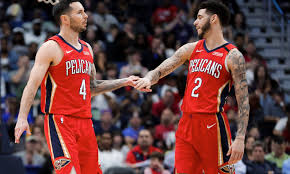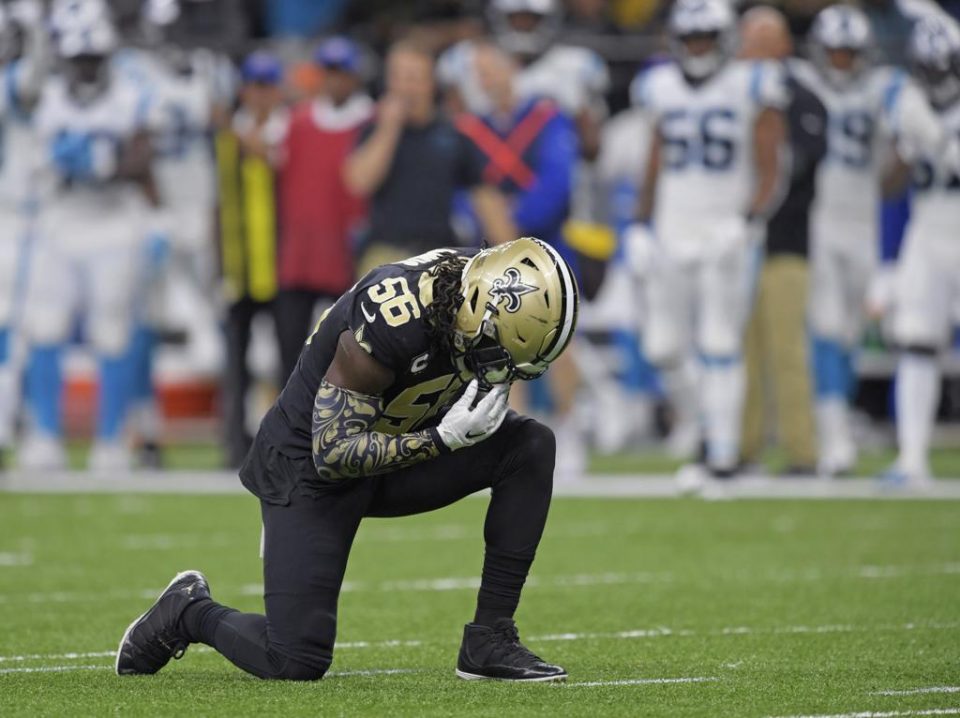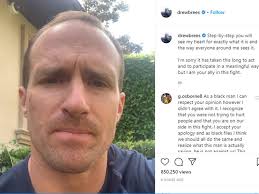By Kenneth Cooper
Remember that old school jam that went, “my long hair just can’t cover up my redneck?” No? Yes? Maybe? Well, neither can the Confederate flag these days, at least at NASCAR events. Who would’ve thunk it, NASCAR taking a stand for black people, banning the flag at all of its races. Not me. But actually, NASCAR has been apparently taking a stand and trying to distance itself from its good ol’ boy heritage for years. In the early 2000s it started the Drive for Diversity program to make the sport more inclusive.
In 2015, NASCAR asked fans not to show up with Confederate flags, and before outright banning the flag last week, its sole black driver, Darrell “Bubba” Wallace, announced he’d be debuting a Black Lives Matter car at his next race. Darrell “Bubba” Wallace is black. And he drives for NASCAR. Again, who would’ve thunk it.
Something is different this time around. Athletes all over are saying enough, breathing their outrage in not just words, but action, after George Floyd, another black man, was killed by police. Typically, the response would be a few tweets, a few thoughts, a few prayers, maybe a gesture of solidarity before or after the Anthem is played at the game. Floyd’s killing, though, has brought out something more impassioned and sustained.

Locally, with the backing of Gayle Benson, three players from the Saints and Pelicans (Demario Davis, Lonzo Ball, and J.J. Redick) have formed the Social Justice Leadership Coalition, a coalition that will expand on the social justice work Davis and Benson have been doing behind the scenes. They support things like the public defender’s office, prison reform, and building a better relationship between citizens and the police. Alvin Kamara has formed a group with LeBron James called More Than A Vote. The goal is not just to get more black people registered to vote and actually casting one at the polls, but it’s also to educate them on the choices that’ll be on the ballot, a way of helping them become more informed about their choices and more responsible when they do vote.

Nationally, the NFL, under pressure from its Players Coalition, announced that it will up its social justice contribution from $100 million to $250 million over 10 years. 50% of that money is initially set to be split between the United Negro College Fund and the Dream Corps, an organization focused on criminal justice and environmental concerns. The other 50% would go to the Players Coalition for grass roots projects in their cities.
After the Drew Brees debacle, the NFL has also changed its stance on kneeling. Two years ago, the league banned kneeling during the Anthem at its games, even threatening to fine teams that couldn’t or wouldn’t keep their players in check. Now, it’s basically giving out knee pads. In a statement last week, Roger Goodell summed up the NFL’s new stance in three words: “We were wrong.”

Could it be that Bob Dylan was right, that The Times They Are A Changin’? Finally? If so, it’s only taken 56 years. He wrote the song in 1964 back when black people were getting their skulls cracked open and sprayed with water hoses for peacefully protesting or demanding that they be granted the civil right to do simple things like eat at a lunch counter or vote. These days, protesters are met with tear gas and rubber bullets, a sign of escalating violence and discontent by the police and protesters. But something seems different this time around. It seems like enough people have finally had just that – enough. Instead of sitting around hoping things will change or wishing for the best, sports stars, and others with money and influence are linking together and doing what many hoped they’d always do – play their part.


[…] And despite the dangers of close gatherings, people have jammed the streets of cities nationwide to protest police brutality. We all witnessed the merciless murder of George Floyd in Minneapolis. Horrified citizens realized the pervasiveness and savagery of police interactions with black men. Athletes, celebrities and everyday citizens marched daily and continue to march weeks later. […]
[…] by Kenneth Cooper […]